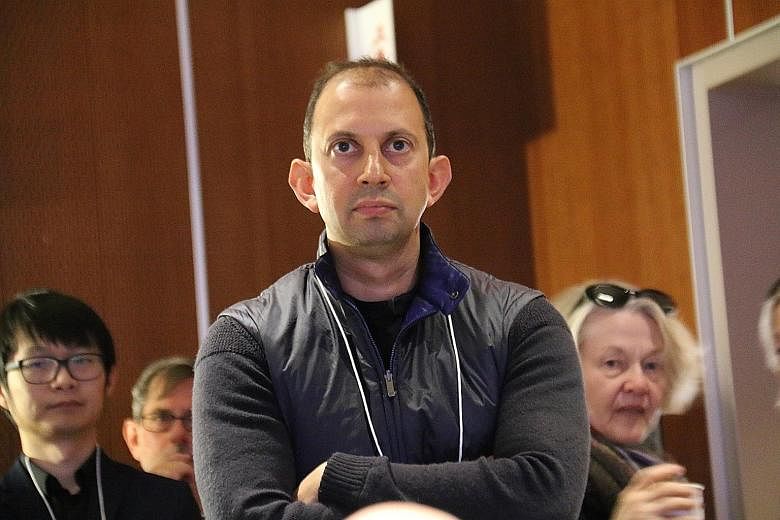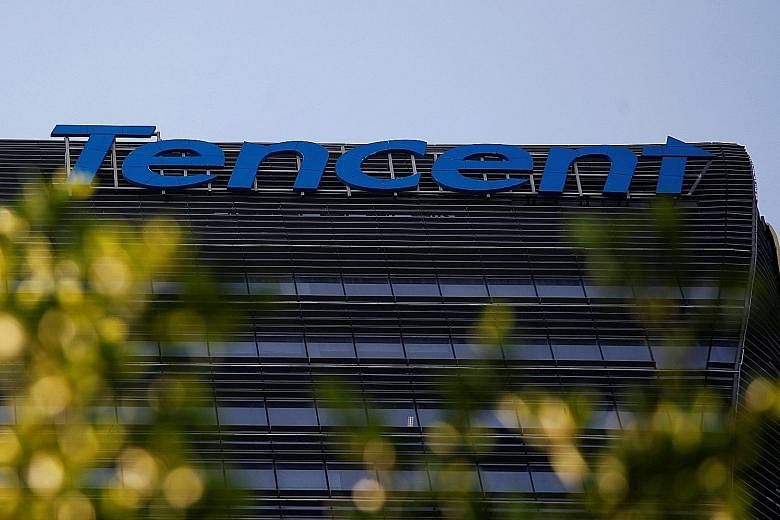After establishing itself as Asia's tech king and becoming an influential investor in Silicon Valley's gaming and virtual reality (VR) companies, Tencent is now moving into an area no one thought it would be synonymous with - the environment.
Tencent, with a market cap of US$341 billion (S$471 billion), is best known as the maker of WeChat. In the US, it owns popular games such as Clash Of Clans and League Of Legends, and is an investor in Snapchat.
It is the largest Chinese corporate investor in the US tech sector, according to data cited by the Wall Street Journal. It owns 5 per cent of electric car manufacturer Tesla and has been quietly pouring money into green technology start-ups, from air-quality monitoring producers to food security analysers.
PrivCo, a firm that tracks privately held companies, reported that Tencent ramped up its spending on non-gaming assets towards the end of last year. It is known to have invested US$1.9 billion into four start-ups focused on sustainability - two of which are in the Bay Area.
PrivCo enterprise consultant Reyda Van believes that Tencent's cleantech investments will increase annually as climate change becomes a growing issue for China.
"There is a layer of nationalism here," said Mr Van. "Tencent is beginning to look at itself as a global leader and can leverage its margins into markets like cleantech."
That is precisely the plan for Tencent's senior executive vice-president David Wallerstein, who heads TenX, the company's venture capital (VC) arm in Palo Alto.
TenX said it has invested in 70 US gaming, artificial intelligence and VR start-ups in the past four years. With Tencent's burgeoning presence in those sectors going stable, Mr Wallerstein said the arm will now focus on investing in firms that work on air, water and food quality.
For example, TenX has invested in Clarity, a three-year-old company that makes air-pollution monitoring devices which provide hyper-localised and real-time air-quality readings in metropolitan areas. Its technology, said co-founder David Lu, would give city councils more accurate pollution data to make city and traffic planning better.
A big backer like Tencent was a huge break for Mr Lu, who said it was difficult to find investors who understood the company's vision of putting social good over baseline profits. Mr Lu said Clarity plans to expand its projects to South-east Asia and Europe next.
Other companies that Tencent has partnered with include autonomous electric car start-up NIO, which received US$600 million in March, and food analytics company Clear Labs, for which Tencent was one of three investors in its US$13 million Series B round.
Mr Wallerstein said the company had deep enough pockets to allow his team to spend money and time on cleantech without the promise of immediate returns. It reported a 58 per cent, or US$2.1 billion, jump in first-quarter profit earnings.
"We're investing in you because we want this technology to be available on planet Earth, not for capital gains," he said, referring to Tencent's overall strategy with cleantech. "We want them to solve the problem and we believe when they do that, as investors there will be plenty of business opportunities."
Whether you buy his vision or not, Tencent's long game might just work, said Dr David Tyfield, a lecturer at Lancaster University's Environment Centre, who studies Chinese energy mobility.
A 2016 working paper by the Massachusetts Institute of Technology (MIT) on VC funding and cleantech said the industry saw a boom in funding in 2006, but it fizzled out in 2011 after firms saw more than half their US$25 billion investments vanish.
Since 2011, VC funding for Silicon Valley cleantech dropped 30 per cent, according to Washington- based think-tank Brookings Institute. Chinese investors can fill that gap, said Dr Tyfield.
"What this means in the future is there will be increasingly obvious Chinese influence in Silicon Valley and it may become the dominant business model," he said.
Tencent's competitors Alibaba and Baidu are also investing in areas such as sustainable transportation. Alibaba poured US$250 million into ride-sharing service Lyft in 2014 and Baidu opened an autonomous driving research centre with former Google and Tesla staff in Sunnyvale.
Dr Benjamin Gaddy, technology development director for the Chicago-based Clean Energy Trust and a co-author of the MIT paper, said while Chinese investments into cleantech were welcome, it could also mean that the US is out of the competition for the sector.
"This is almost a mirror for what happened in the solar industry with China," he said. China gave companies nearly US$42 billion in incentives to produce cheaper solar panels, leading Beijing to be accused of dumping them on the US market for a loss to knock out the local competition. What resulted was a win for the environment but a loss for US businesses.
"It would be a shame if US companies decide 'let's let foreign investors take care of this' and back away. We need everyone at the table," Dr Gaddy said.


